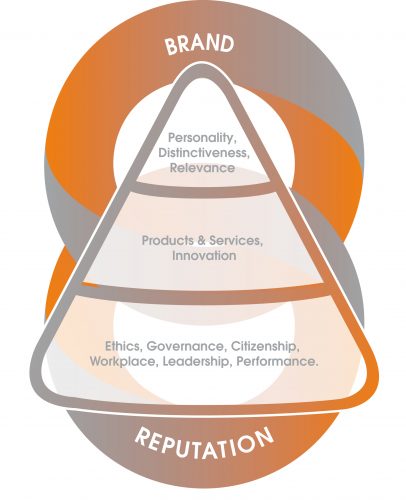
Defining a corporate purpose.
It can sometimes feel strange watching companies identify a need to define their ‘purpose’ as if they’d previously operated without one. Anyone who runs a company knows that the purpose of the company – first and foremost – is to make a profit. Without profit, the company ceases to exist.
Ah, you say, it’s different now. To survive today, companies must balance profits with social purpose and impact. And there is something in this. Larry Fink, CEO at Blackrock summed it up when he said “purpose is not the sole pursuit of profits but the animating force for achieving them. Profits are in no way inconsistent with purpose – in fact, profits and purpose are inextricably linked.”
But this is nothing new. Companies have always needed to balance the interests of a variety of different groups. They’ve always needed a strong brand proposition for customers and a positive corporate reputation in areas such as performance, ethics, strategy, leadership etc. for other stakeholders such as regulators, investors, employees, special interest groups, etc. Our work at Tovera has shown that companies with a strong corporate brand and a strong reputation are those that are the most successful over the long term and this has been central to our own proposition.
What is different today is that companies are now looking to ‘corporate purpose’ to do something we’ve previously considered central to the ‘corporate brand’. That is, to carve out a credible and differentiated proposition that resonates with – and satisfies the expectations of – a multitude of audiences whilst working in support of the corporation’s product brands.
We’ve been advising companies for many years on how to define and build powerful corporate brands and reputations. Recently we’ve also been tasked with helping companies define corporate purpose. For us, purpose has always been central to the corporate brand.
Here’s what we know:
Corporate purpose is an expression of what sits at the heart of a company; what it stands for and why it exists beyond making a return for shareholders. It must work in support of – or in some cases, even define – the company’s relevant and differentiated positioning and reflect its desired reputation in aspects of ethics, corporate behaviour, social impact and responsibility. It must work in support of the commercial strategy, not against it. So, Tovera’s approach ensures that all are considered.
Most of you know Tovera’s brand and reputation model (figure 1). When we developed the model over 5 years ago, we considered Purpose as a core tenet of the corporate Brand.
The Tovera Brand and Reputation model encompasses the total Brand entity its Purpose, its reason for being, its distinctive place in the business universe; it is what consumers consume, investors invest in and governments regulate; it needs to be the best it can be in order to compete effectively; its differentiated offering is key.
The model recognises that the corporate Reputation is what underpins the corporate Brand’s activity – its way of working, its processes, transparency of its reporting procedures, how it treats its workers and suppliers; it needs to be the best it can be in order to be esteemed by all its stakeholders; its integrity is key.
We know from many years of experience of working with leading companies, that purpose cannot be considered in isolation, it must be viewed holistically through the lens of the corporate brand, its broader reputation and in the context of the company’s commercial strategy. Any expression of core purpose must balance and support all three. That is – and has always been – our approach (figure 2).
| Fig 2: Tovera Brand & Reputation Model |
|
Fig 3: Tovera Purpose Model |



